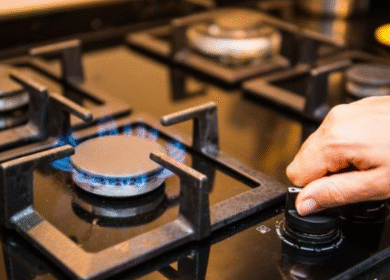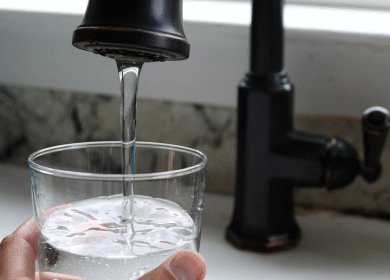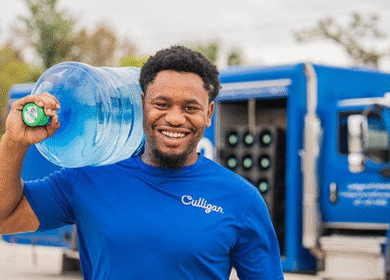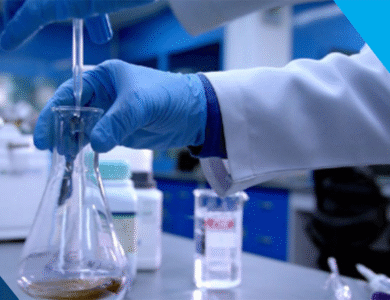How a Water Softener Can Transform Your Home and Everyday Life
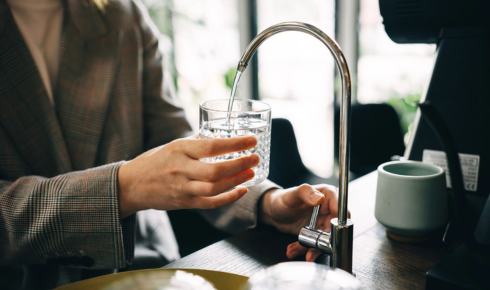
It’s funny how something as invisible as water can impact your life so dramatically. At first glance, most of us don’t give it a second thought—tap it, drink it, shower in it, and go about our day. But once you start noticing the little signs—spots on your glasses, soap that refuses to lather, a stubborn crust on faucets—it hits you: your water might be hard. And suddenly, something you’ve taken for granted feels like a nuisance creeping into every corner of your home.
For years, my household dealt with that silent annoyance. Our dishes looked dull, laundry didn’t quite feel clean, and our hair felt strangely dry no matter how much conditioner we used. Then, a friend suggested looking into water softening solutions. I wasn’t convinced at first—it sounded fancy, maybe unnecessary. But after a bit of research and a couple of consultations, I realized it wasn’t just a luxury. A good water softener system could actually save time, money, and frustration.
What is Hard Water, Anyway?
Hard water essentially means your water is packed with minerals, primarily calcium and magnesium. These minerals aren’t dangerous to drink, but they love to leave a mark on everything they touch. Faucets get coated, soap refuses to foam, laundry looks dingy over time, and appliances like water heaters and dishwashers start to suffer.
At first, you might ignore it. A little spot here, a dull shirt there—it feels trivial. But the cumulative effects are real. Hard water can reduce the efficiency of your appliances and even shorten their lifespan. Over the years, those small inconveniences translate into bigger expenses. That’s why a water softener isn’t just a “nice-to-have.” It’s more like a silent guardian for your home.
How Water Softeners Work
The technology behind a water softener is surprisingly simple and clever. Most systems use something called ion exchange. In layman’s terms, the system swaps the minerals in your water that cause hardness for sodium or potassium ions. The result? Softer water that lathers more easily, feels gentler on your skin and hair, and leaves fewer deposits on your pipes and fixtures.
Some modern systems are almost too smart for their own good—they adjust regeneration cycles based on water usage, save salt, and some even connect to apps for monitoring. And if you’re shopping around, companies like mcleods eco water offer systems that combine durability with eco-conscious features. It’s not just about soft water—it’s about having a solution that fits seamlessly into your life.
Signs You Might Need a Water Softener
Sometimes, it’s obvious. Sometimes, it’s subtle. If you notice any of these signs, it might be time to consider a water softener:
- Soap scum on your shower walls or faucets
- Dull or grayish laundry despite using quality detergent
- Water spots on dishes and glasses
- Dry skin or brittle hair
- Reduced efficiency or frequent repairs of water-using appliances
Once you start seeing these little indicators, it’s easier to realize how pervasive hard water can be. And the relief after installing a proper system? Almost immediate.
Finding the Right System
Not all water softeners are created equal, and the right one depends on your household’s size, water usage, and hardness levels. This is where doing a bit of homework pays off. Sometimes, a simple call to water softener systems near me can give you a sense of what’s available in your area. Visiting a few providers or scheduling an in-home assessment can help you understand which system will meet your needs without overpaying.
Some people prefer traditional salt-based systems, while others go for hybrid solutions that combine softening and filtration. It’s all about lifestyle, convenience, and long-term efficiency. A well-chosen system will pay for itself over the years in reduced appliance maintenance, lower energy bills, and less time spent scrubbing away mineral deposits.
The Importance of Maintenance
Even the best water softener needs a little TLC. Keeping the brine tank filled, cleaning out any sediment, and monitoring for any leaks or malfunctions are key. Neglecting maintenance can reduce efficiency, shorten the system’s lifespan, and even negate some of the benefits of soft water.
For those who prefer to leave it to the pros, seeking out water softener maintenance near me ensures that your system continues to operate smoothly. Professionals can handle tricky parts, inspect the resin bed, and ensure regeneration cycles are functioning properly. A quick annual or semi-annual check can save a lot of headaches—and money—in the long run.
Even if you’re hands-on, knowing when to call in a professional is wise. Maintenance doesn’t have to be a chore, but it does need attention to detail.
Unexpected Benefits
What many people don’t realize is that soft water does more than just make dishes sparkle. Your skin and hair can benefit, too. Softer water reduces dryness, irritation, and the need for excessive soap or shampoo. Clothes last longer, colors stay brighter, and cleaning is faster because soap and cleaning agents work more effectively.
Appliances like water heaters, dishwashers, and washing machines operate more efficiently. They don’t have to work as hard to heat or move water, which saves energy and prolongs their lifespan. That’s a perk most homeowners don’t anticipate until they experience it firsthand.
Even small chores feel less frustrating. Mirrors, windows, and tiles are easier to keep spotless. No more obsessive scrubbing after every shower. It’s the kind of improvement that quietly but consistently enhances daily life.
Cost Considerations
Water softeners range widely in price. Basic units might run a few hundred dollars, while high-end or hybrid systems can be a few thousand. Installation costs vary, especially if plumbing modifications are needed. It’s tempting to focus only on the upfront cost, but long-term savings—reduced energy bills, fewer appliance repairs, and less wear on plumbing—often outweigh initial expenses.
The best approach is to think of it as an investment, not a purchase. Your water system works quietly every day, and a reliable water softener pays for itself in convenience, comfort, and efficiency.
Making the Decision
If you’re hesitating, consider how hard water is quietly affecting your home. Those small annoyances—spotted dishes, dull laundry, itchy skin—might feel minor, but they add up. A water softener transforms everyday routines, making your life more pleasant without demanding constant attention.
The right system, installed correctly and maintained regularly, is almost like insurance for your home. You might not notice it every day, but over time, it protects your investment and improves your quality of life.
Even if it’s just for peace of mind, exploring your options—whether it’s checking out mcleods eco water or finding water softener systems near me—is worth a few minutes of research. Once you’ve experienced soft water, it’s hard to imagine going back.
Conclusion
Hard water might be invisible, but its impact is tangible. From your appliances to your skin, hair, and even household chores, its influence is everywhere. Installing a water softener—especially a system that fits your home’s specific needs—and keeping it properly maintained can make a noticeable difference.
Whether you choose a reliable system from mcleods eco water or simply explore options by searching for water softener systems near me, the benefits are immediate and long-term. Pair that with regular upkeep, whether DIY or via water softener maintenance near me, and you’ve got a setup that keeps your home running smoothly and comfortably for years.
Life is full of small frustrations, and hard water doesn’t need to be one of them. Investing in a quality water softener is a small change that quietly improves daily routines, saves money, and protects your home. Once you make the leap, it’s the kind of upgrade that feels effortlessly transformative—simple, practical, and utterly worth it.
